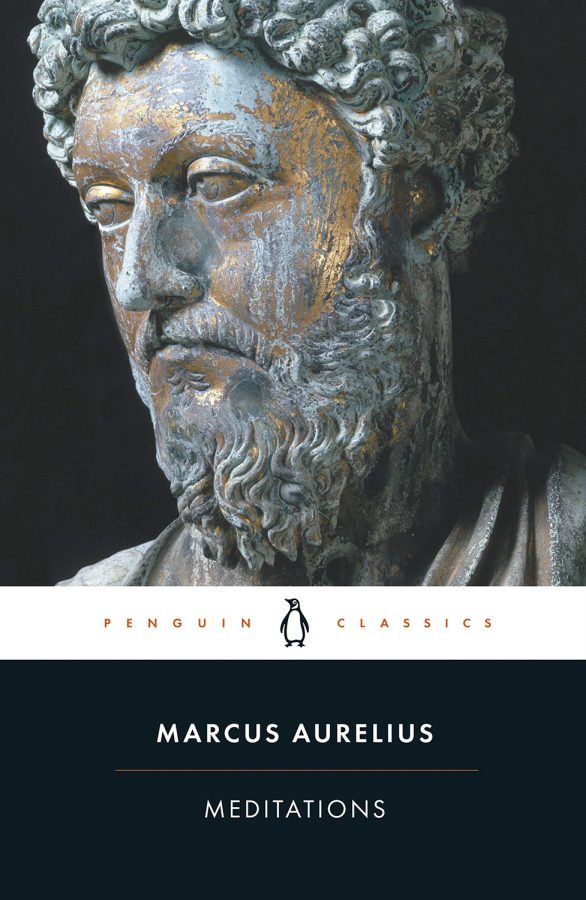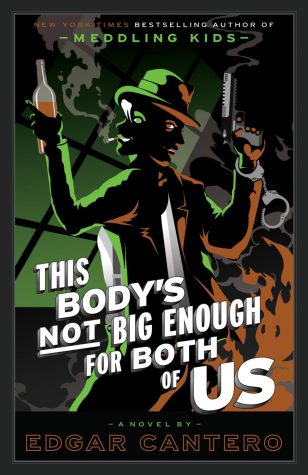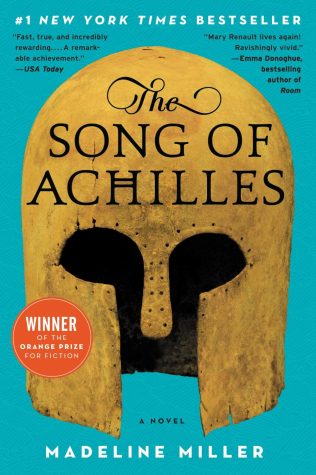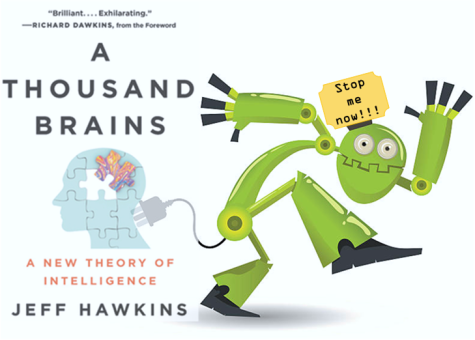Book Review: ‘Meditations’ proves Roman emperors can be relatable
Marcus Aurelius’ Stoic philosophy essential reading for modern students
COURTESY OF PENGUIN PUBLISHING
“Personally, I find it validating that the most powerful person in the Roman Empire would also rather stay in the comfort of his bed than get up and go to work.”
June 27, 2022
When you think of relatable people, I am sure “Roman emperor” is not at the forefront of your list. You may be asking yourself, “What on earth does a college student in 2022 have in common with a guy that died almost 2,000 years ago?”
Surprisingly, quite a bit!
During his reign, Marcus Aurelius, emperor of Rome from A.D. 161 to 180, recorded his inner thoughts and Stoic philosophy in his journal turned book, “Meditations.” The “Meditations” is comprised of 12 books, and before this completely scares you away from reading it, each book is basically a chapter, and the “Meditations” in total is less than 200 pages.
As a philosophy major, I have read various books by great philosophical thinkers. Yet, I have never read a philosophy book quite like the “Meditations.” Unlike the long convoluted philosophy books that feel very abstract and distant from your own reality, the “Meditations” is a personal collection of writing entries by Marcus.
Essentially, it was his diary.
Stoicism, the school of thought Marcus subscribed to, separates all knowledge of the universe into three branches: logic, physics and ethics. So there is something for everyone (well … most people)!
You do not even have to be interested in philosophy or have a foundational understanding of Stoicism to enjoy the “Meditations.” The book is a great read, with excellent advice and relatable snippets.
At the beginning of Book Five, Marcus wrote about the difficulties of getting up in the morning and being productive — as college students, I am sure we can all relate.
Personally, I find it validating that the most powerful person in the Roman Empire would also rather stay in the comfort of his bed than get up and go to work.
Marcus gives great advice and emphasizes concerning yourself only with what is in your control. Because you cannot control external events, you might as well not bother worrying about them.
While this advice is sound, it is a lot easier said than done. I know I am terrible at not worrying about things outside of my control, however, it is still a good practice to remind yourself.
If you have ever had to deal with arrogant, ignorant or downright rude people, you will, in all likelihood, find Marcus’ rants and resolutions cathartic.
“That men of a certain type should behave as they do is inevitable,” Marcus wrote. “To wish it otherwise were to wish the fig-tree would not yield its juice. In any case, remember that in a very little while both you and he will be dead, and your very names will quickly be forgotten.”
So, next time you come face-to-face with an audacious character, remind yourself that in the grand scheme of things, none of it really matters. You do not need to waste your energy on certain people.
One of the other great things about this book is that each passage is only about a paragraph or two long, meaning you can pick it up and read it for only a few minutes at a time. It is a great book if you are someone, like me, who can never hold their attention on a book long enough to finish it.
Most people probably read the “Meditations” front to back, however, I preferred just flipping around and reading random passages that sparked my interest. There really is no wrong way to read this book.
Just a few of the messages I took away from the “Meditations” were: annoying people are just part of life, stop caring about others’ opinions, be a good just person, be kind to yourself and we are all gonna die anyway so you might as well enjoy your life!
So, if you are looking for a quick read that will give you a few laughs and great advice on incorporating Stoicism into your life, I highly recommend you check the “Meditations” out.

















